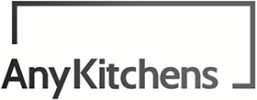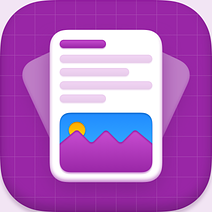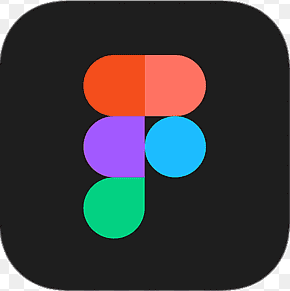React Native Mobile App Development
“Create mobile apps that your users will love, faster than ever before with React Native.”
Kedar Infotech is a leading provider of React Native development services, offering clients a comprehensive suite of mobile app development solutions. With React Native’s flexible UI components, our react native developers can create responsive, cross-platform apps that run smoothly on both iOS and Android devices.
Our team of expert React Native developers work closely with clients to understand their unique requirements, developing customized solutions that meet their business needs. We specialize in building high-performance, scalable mobile apps that provide a seamless user experience. With our React Native development services, clients can take advantage of a powerful and cost-effective technology to build mobile apps that stand out from the competition.
“Our numbers speak for themselves.”
0
+
Diverse Domains
0
+
React Native Websites Developed
0
+
React Native Developers
0
%
On Delivery Time
Our React Native App Development Services
“Our expert fingers take no time in crafting top-notch web apps!”

Custom Mobile App Development
With React Native’s native components and advanced tooling like Metro Bundler and Babel, our expert developers create feature-rich apps with a single codebase, reducing development time and effort.
Using popular libraries such as Redux and React Navigation to manage state and handle complex navigational flows, we provide a smooth and intuitive user experience.
Using popular libraries such as Redux and React Navigation to manage state and handle complex navigational flows, we provide a smooth and intuitive user experience.

User Interface (UI) Design and Development
Our experts use React Native’s declarative syntax, component-based architecture, and hot reloading capabilities, to ensure a rapid development cycle and a consistent look & feel across iOS and Android devices.
By rendering UI components directly in native code, we achieve lightning-fast response times, smooth animations, and a great user interaction, giving your app the performance and fluidity users expect.
By rendering UI components directly in native code, we achieve lightning-fast response times, smooth animations, and a great user interaction, giving your app the performance and fluidity users expect.

Cross-Platform Development
React Native is a popular framework for cross-platform app development, allowing developers to build mobile applications for both iOS and Android platforms using a single codebase.
It uses JavaScript and React to create native-like user interfaces and access device features, enabling efficient development, maintenance, and cost savings by sharing code across platforms while delivering native performance and user experiences.
It uses JavaScript and React to create native-like user interfaces and access device features, enabling efficient development, maintenance, and cost savings by sharing code across platforms while delivering native performance and user experiences.

Integration Services
We use React Native’s framework to write code in JavaScript and render native components, maximizing code reusability and reducing development time.
We utilize popular libraries and tools such as Redux, React Navigation, and Axios to efficiently manage state, navigate between screens, and make API requests seamlessly.
We utilize popular libraries and tools such as Redux, React Navigation, and Axios to efficiently manage state, navigate between screens, and make API requests seamlessly.

Redux State Management
Redux is a state management library commonly used with React Native to efficiently manage and synchronize the application's state across components. It provides a centralized store for data and actions, enabling predictable and maintainable app behavior while simplifying the process of passing data between components.
By implementing Redux in a React Native app, developers can ensure data consistency and improve code organization, making it easier to handle complex app states and interactions.
By implementing Redux in a React Native app, developers can ensure data consistency and improve code organization, making it easier to handle complex app states and interactions.

App Store Submission and Deployment
Submitting and deploying a React Native app to the app stores (such as Apple App Store and Google Play Store) involves following platform-specific guidelines and using tools like Xcode and Android Studio.
After thorough testing, you can package your app, create app listings, and go through the review process to make it available to users worldwide.
After thorough testing, you can package your app, create app listings, and go through the review process to make it available to users worldwide.

Performance Optimization
React Native app performance optimization involves techniques like code splitting, lazy loading, and using native modules to reduce app bundle size and improve startup times.
Additionally, optimizing rendering, minimizing unnecessary re-renders, and profiling for bottlenecks can enhance the app's responsiveness and overall user experience.
Additionally, optimizing rendering, minimizing unnecessary re-renders, and profiling for bottlenecks can enhance the app's responsiveness and overall user experience.

App Marketing and Promotion
Effectively marketing and promoting a React Native app involves creating a compelling app store listing with eye-catching visuals, clear descriptions, and engaging keywords to attract users.
Additionally, utilizing social media, email marketing, app review campaigns, and partnerships can help boost visibility and user acquisition, ultimately leading to a successful app launch and growth.
Additionally, utilizing social media, email marketing, app review campaigns, and partnerships can help boost visibility and user acquisition, ultimately leading to a successful app launch and growth.
Frequently Asked Questions
“We built strategies before development that work just for you.”
Firstly, React Native allows for code reusability, enabling developers to write a single codebase that can be used for both iOS and Android platforms. This saves time and effort in development and maintenance. Secondly, React Native provides a native-like performance by leveraging the device’s GPU and rendering UI components as native widgets. Additionally, it offers a hot-reloading feature, enabling developers to see real-time changes in the app without recompiling it. Lastly, React Native has a large and active community, providing extensive support, libraries, and ready-made solutions.
Yes, React Native allows for the integration of existing native code into apps. This feature is particularly useful when developers want to leverage specific platform functionalities or use existing native modules. React Native provides a bridge that allows communication between JavaScript and native code, enabling seamless integration. Our developers can write custom native modules in Java, Objective-C, or Swift and access them from the React Native codebase. This flexibility allows our expert developers to combine the power of React Native’s cross-platform capabilities with existing native code, enhancing the functionality and performance of their apps with our React native migration services.
At Kedar Infotech, we prioritize performance and efficiency in React Native development. We follow industry-standard practices to optimize the performance of React Native applications. Our developers utilize tools like React Native Debugger and Chrome Developer Tools to identify and address any performance bottlenecks. Additionally, we employ techniques such as code splitting, lazy loading, and implementing efficient data fetching strategies to enhance the overall performance of React Native apps.
Initially, unit testing should be employed to test individual components and functions. Libraries like Jest and Enzyme can be used for unit testing React Native apps. Secondly, integration testing should be performed to test the interaction between different components and modules within the app. Tools like Detox and Appium can assist in writing integration tests. Additionally, debugging can be done using tools like React Native Debugger, Chrome DevTools, and Flipper. In Kedar Infotech, we use such tools to provide insights into the app’s state, performance, and network requests, aiding in the identification and resolution of issues.
At the outset of every project, we establish a Non-Disclosure Agreement with each client to uphold strict confidentiality standards. Our commitment to safeguarding our clients’ information and intellectual property is of the utmost importance to us, and we take every precaution to ensure that it remains secure and private.
Our Customers














































